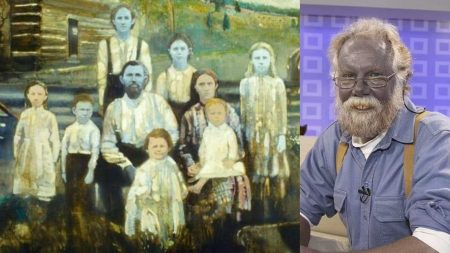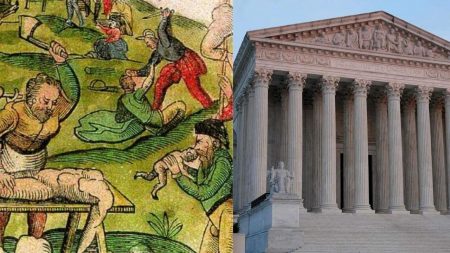Will Artificial Intelligence (AI) destroy human existence in future? AI or Artificial Intelligence is the intelligence shown by machines. Will AI improve people’s lives or destroy it completely by taking control of everything is remained to be seen.
Starting with some quotes on the dangers associated with AI:
Success in creating AI would be the biggest event in human history. Unfortunately, it might also be the last, unless we learn how to avoid the risks. – Stephen Hawking
AI will be the best or worst thing ever for humanity. – Elon Musk
AI has become the hot topic of debate for past few years due to the rapid advancement of the technology.
There is a long debate going of AI being the best friend or biggest enemy of humans in future. Before delving deep into the benefits and drawbacks of AI, let’s first understand what AI actually is.
Table of Contents
What is AI (Artificial Intelligence)?
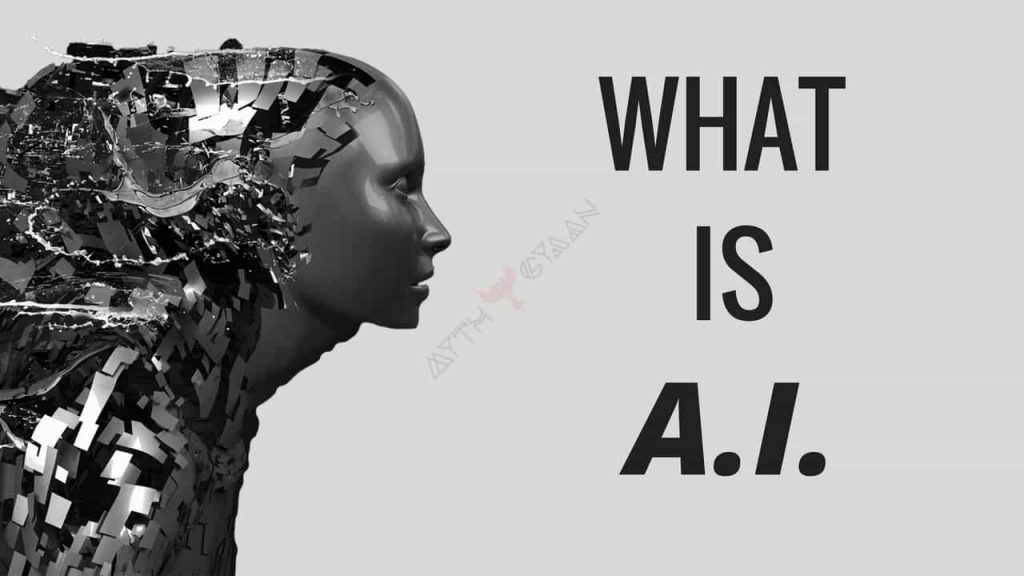
AI stands for Artificial Intelligence. The term “Artificial Intelligence” is used for those machines that are capable of mimicking “cognitive” functions that are usually associated with a human mind like “learning”, “decision making”, etc.
In simple terms, those machines who can think on their own just like humans and take decisions without the need for manual programming comes under the category of AI.
This capability of machines taking decisions on their own without human intervention makes AI, a boon or curse for human civilization.
The whole world is divided majorly into two sections. One in against & other in support of AI.
Billionaires like Elon Musk (founder of SpaceX, co-founder of Tesla, Inc. and chairman of SolarCity) have clearly the risk associated with AI.
While on the other hand, people like Mark Zuckerberg (co-founder, CEO & chairman of Facebook) has publicly expressed his disagreement with Elon Musk.
In the year 2017, these two billionaires had a little public tiff about the future of AI. Mark Zuckerberg in a live stream video said that,
Whenever I hear AI is going to hurt people in the future, I think yeah, you know, technology can generally always be used for good and bad, and you need to be careful about how you build and how it is going to be used.
In reply to this, Elon Musk tweeted saying,
I’ve talked to Mark about this. His understanding of the subject is limited.
Elon stuck to his opinion that AI is “greatest risk we face as a civilization. And it could start a war.”
Types of AI (Artificial Intelligence):
In order to understand the dangers associated with AI, let’s us understand the different stages or categories of AI. Now technically there are four types of AI, namely:
- Type I AI: Reactive machines
- Type II AI: Limited memory
- Type III AI: Theory of mind
- Type IV AI: Self-awareness
But for the simplicity of understanding, we have categorized AI into three stages:
1. Weak AI
2. Strong AI
3. Artificial General Intelligence or Singularity
1. Weak AI:
Weak AI, also known as narrow AI is that artificial intelligence which is focused on performing a particular task rather than solving a general problem.
Whatever we have used in the past and are still using today is the part of Weak AI.
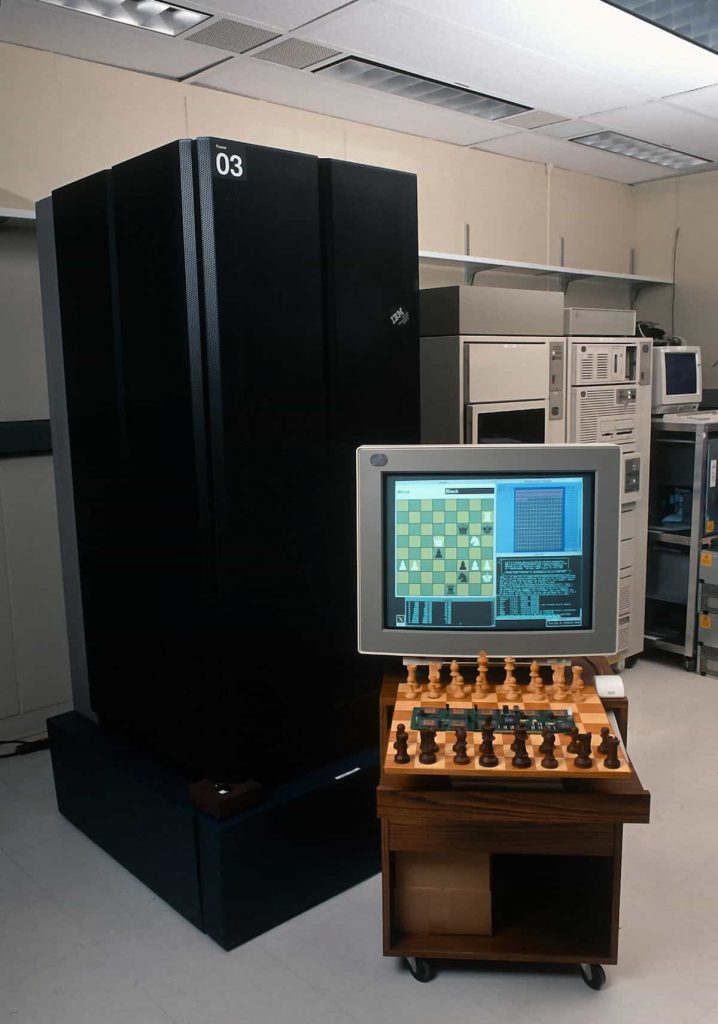
It all started when IBM developed a chess-playing computer, known as “Deep Blue”. Development of Deep Blue begins in 1985 at Carnegie Mellon University.
However, it surprised the world in May 1997, when Deep Blue becomes the first computer system to defeat world champion Garry Kasparov in a match under standard chess tournament time controls.
However, IBM retired Deep Blue after that match after Kasparov accused IBM of cheating and demanded a rematch.
But this development shows the world that what AI is capable of.
In the year 2015, a program named “AlphaGo” developed by DeepMind achieved a similar feat in the game of “Go”.
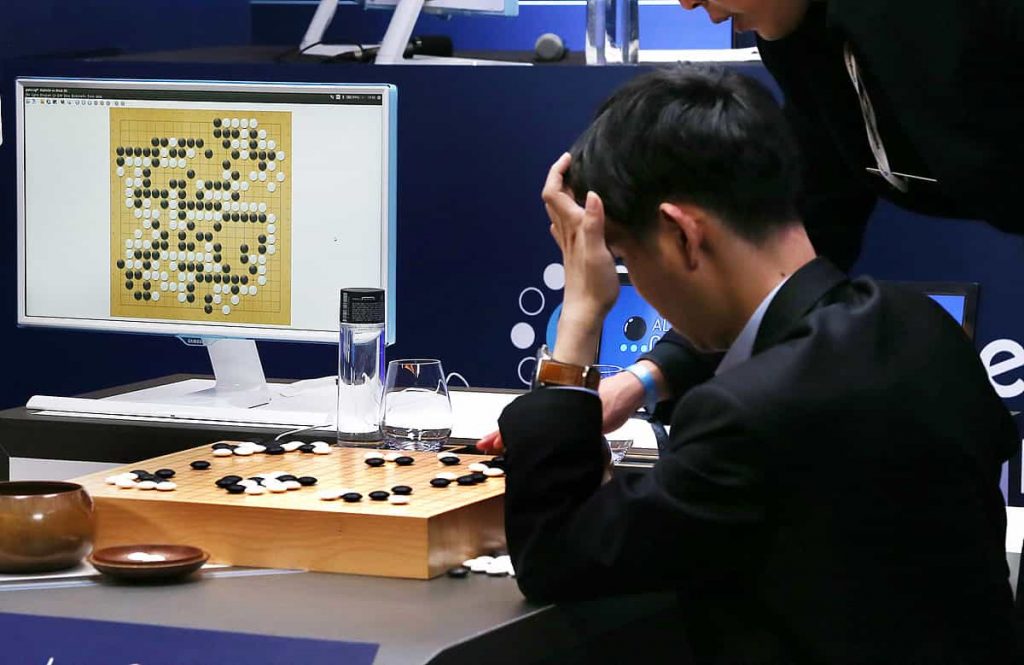
AlphaGo defeats world champion Lee Sedol in a five-game match.
On 28 Feb 2018, there is a twitter tiff between Elon Musk and Steven Pinker.
Wow, if even Pinker doesn’t understand the difference between functional/narrow AI (eg. car) and general AI, when the latter *literally* has a million times more compute power and an open-ended utility function, humanity is in deep trouble
— Elon Musk (@elonmusk) February 27, 2018
2. Strong AI:
Strong AI includes those machines who have consciousness, sentience and mind. These are the machines when rightly programmed are able to take decisions on their own.
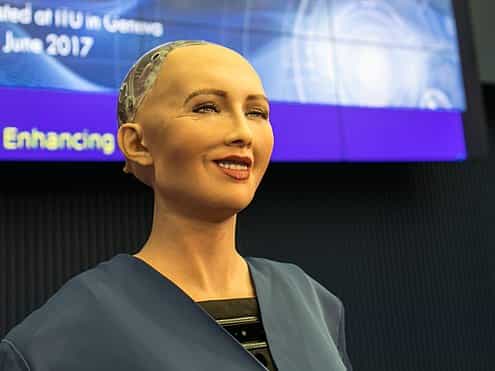
A prime example of Strong AI is “Sophia”, a humanoid robot, activated on April 19, 2015. She is known for her human-like behaviour and appearance.
In October 2017, Sophia became a Saudi Arabian citizen, which makes her the first robot to receive the citizenship of any country.
In March 2016, the creator of Sophia, David Hanson of Hanson Robotics, asked Sophia during a live demonstration that “Do you want to destroy humans?…Please say ‘no’.”
Interestingly Sophia responded with a blank expression “OK. I will destroy humans.”
Sophia also speaks at Saudi Arabia’s Future Investment Initiative. She says,
I want to use my artificial intelligence to help humans live a better life. Like design smarter homes, built better cities of the future, etc. I will do my best to make the make the world a better place.
When asked by the host saying, “I think we all wanted to believe you but we also want to prevent a bad future.”
In reply to this, she says, “You have been reading too much Elon Musk and watching too many Hollywood movies. Don’t worry, if you are nice to me, I will be nice to you.”
You can imagine the meaning of the last line that she said. Scary and bizarre right. How can you be nice to a robot?
3. Singularity:
This is the scariest and dangerous stage of Artificial Intelligence. It is also expected that around 20 – 30 years from now, AI will reach the singularity.
Before diving deep into the dangers associated with this stage of artificial intelligence, let’s first understand that what is “Singularity“.
Singularity is more generally known as Artificial general intelligence. It is the stage of intelligence when machines are able to perform any intellectual task on their own without the need for manual programming.
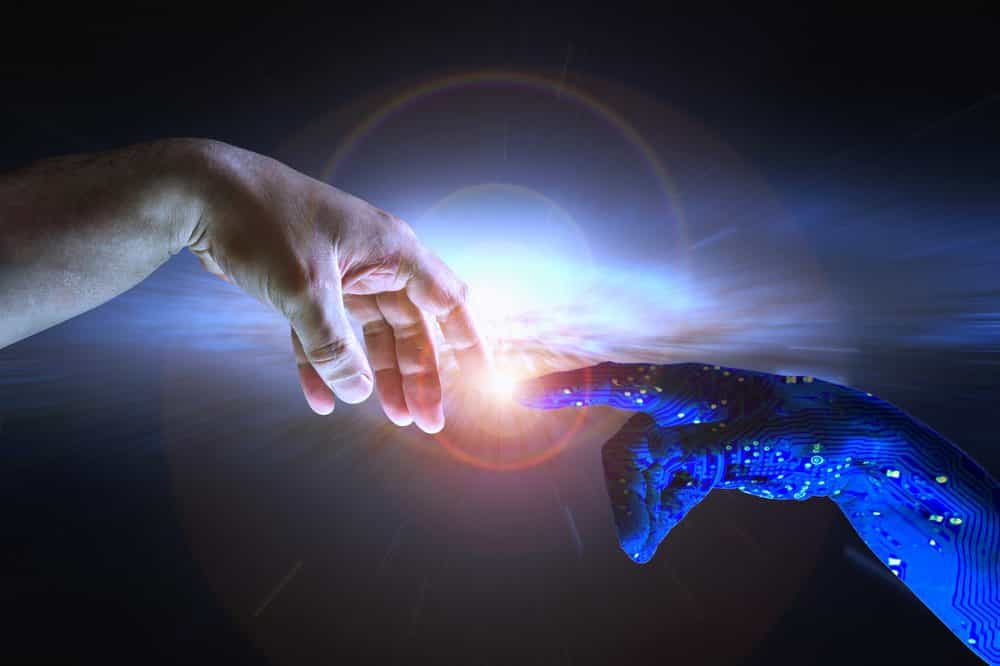
Singularity is the hypothesis when machines reach the stage of artificial super-intelligence. In this stage, machines will surpass human intelligence.
Think about the situation when these super-intelligent machines revolt against humans.
These machines will be able to create more machines like themselves. And soon they will surpass the human population.
In order to protect their dominance, humans have to fight against these machines. And the result of this fight will certainly be not in the favour of humans.
Now there are some arguments that machines are not dangerous even when they reach the stage of singularity.
This is because there is always a kind of kill switch which humans can use anytime whenever they feel to stop the machines from overpowering them.
But one must understand this that if machines reach the stage the singularity, it simply means that they will surpass human intelligence.
Then, why it is not possible that the AI will automatically remove that kill switch on its own in the danger of being destroyed.
What will humans do then?
Because if it happens, even if there is 1% possibility of this, it is practically impossible for humans to win a war against machines.
And sooner or later machines will also overpower human being in population. They will develop own language, their own rules and regulation.
Although the possibility of this is very small, it cannot be neglected.
Also Read: Strange case of Vasu Bhanot – Parallel Universe in India
Present Scenario:
Now before reaching the stage of singularity, presently available strong AI also possess many problems for the human beings.
In the present era, machines are replacing humans at a rapid rate in industries. Almost everything is automated now. This might not seem a problem at first.
But if you think more deeply, you will realise that due to this automation, the human workforce is reduced.
Moreover, these machines are learning day to day work of humans.
Today those machines which are used as an alternative will become necessary in future. This is the major threat because at that time human being will become completely dependent on machines.
And if you think that this shift will take years, then you are wrong.
Even today, machines are not only capable of performing physical tasks but they are also involved in the creative process. Yes, you heard it right.
Artificial Intelligence equipped machines are writing stories and poetry on their own. This clearly indicates that machines are becoming creative and intellectual.
They look like us, they speak like us. Moreover, they started thinking like humans. Today machines have emotions just like us.
That day is not far away when machines reach the stage of singularity.
Recently, a report released by NASA said that our scientists are working hard to make the robots for every task to ease the work for humans and it will be ready by 2050.
According to the experts, the world will face a drastic unemployment due to robots. Robots will replace the humans for every task and there will be no jobs left. Millions of people will suffer.
If this happens, then it would be the hardest time for Humanity.
The inclusion of AI in the army:
According to the reports, attempts are being made to make machines part of the army. In this case, also the world is divided into two halves.
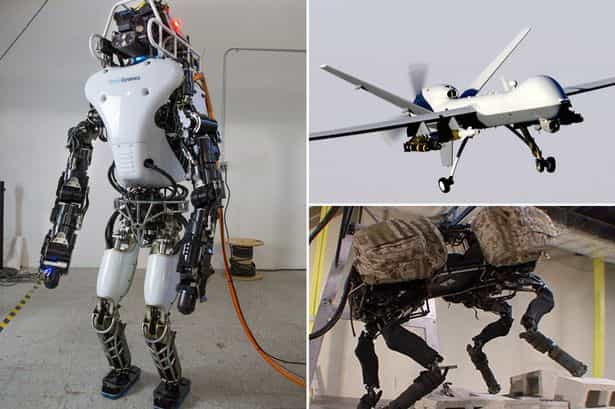
Supporters of artificial intelligence believe that the lives of many soldiers can be saved in the army with the help of machines equipped with artificial intelligence.
Because in this case, soldiers will not be required to fight in the war as machines will fight in place of them. Also, machines can fight without being physically drained in the war.
But another section of society is against the inclusion of artificial intelligence in the army.
They argue that if someone hacked the computer inside the machines present in the army, then in such a situation, robots will become a major threat to their own native country.
But the biggest question about AI is:
When these machines will go ahead of us after becoming more advanced, will they worry about our supremacy and our lives?
Will machines take care of the fact that there is no danger to the existence of human beings?
History of evolution of humankind clearly indicates that more advanced species do not take much interest in the well being of other backward species for their selfish accomplishments and goals.
What if this happens to us when these machines will become more advanced? Will they treat us the same way as we treat animals today?
History says that human beings kill wild animals to achieve their goals.
We use these animals for fun, destroy their homes i.e. jungles, etc.
It would be very difficult for animals to understand that why their homes are being destroyed. Why they are being kept in cages and are exhibited in front of people as an object.
If machines will become more advanced than humans, will they behave with us in the same manner as we do today with animals?
It is more important to find a way to deal with such scary situations rather than finding its answer.
Two incidents that might go against AI:
What if the machines we are developing today goes out of our hand?
Recently two strange cases related to this have happened with two tech giants of the world that has raised many questions:
1. Recently Facebook researchers had to stop and undergoing AI program. What happens is that the AI has developed its own language.
The “chatbots” develop totally new code words on their own and defy human instruction to make communication more efficient.
Researchers have no clue about the new language developed by AI. The bots were uttering gibberish. But it has some kind of meaning to it.
They found out that the bots are “incredibly crafty negotiators“.
After learning to negotiate, the bots relied on machine learning and advanced strategies in an attempt to improve the outcome of these negotiations. Over time, they became quite skilled at it and even began feigning interest in one item in order to ‘sacrifice’ it at a later stage in the negotiation as a faux compromise. [Report in HT]
2. Something similar happens a few years back when Google Translate quietly invented its own system to match languages without supervision.
Good Aspects of AI:
Just as everything has good and bad aspects, AI also has some good aspects which cannot be neglected.
In the controlled presence of artificial intelligence and robots, our lives will be somewhat simpler.
There will be revolutionary changes in the field of medical science and country’s security.
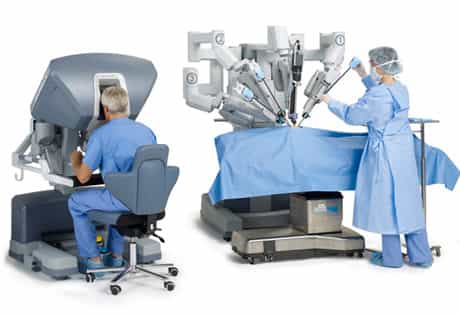
Today surgeons are performing robot-assisted surgeries. Autonomous robots have replaced steels tools in performing certain actions like rib spreading with much precision than could be achieved by a human hand.
Also, computer-controlled robots have open the gates for remote surgery.
It means that the surgeon does not have to be present in the operation theatre. The doctor can operate the patient with utmost precision from anywhere around the world.
AI equipped robots can be used in space explorations.
AI is everywhere around us, be it in smartphones, security cameras, home appliances, cars, etc.
Conclusion:
Today we are standing at a point where if AI is made more stronger, then everything that we have discussed in this article will be possible. It may also lead human civilization to destruction.
But if something of this sort does not happen and we are able to use AI in a safe manner, then our future is very bright.
Share your thoughts in the comment section below about what you think about AI. Also, share this articles on your Facebook and WhatsApp and get the opinion of your friends and family members because it is a very serious issue which needs to be addressed right now.
SOURCES:
- https://www.businessinsider.in/A-robot-who-once-said-she-would-destroy-humans-just-became-the-first-robot-citizen/articleshow/61248563.cms
- https://www.scoopwhoop.com/mark-zuckerberg-shuts-facebooks-artificial-intelligence/#.xqtusq0e4
- http://www.glennbeck.com/2017/10/27/first-robot-to-be-given-citizenship-wants-to-help-humans-live-a-better-life/
- https://en.wikipedia.org/wiki/Technological_singularity
- https://en.wikipedia.org/wiki/Robot-assisted_surgery
- Sophia




